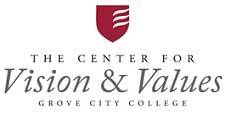By Dr. Mark W. Hendrickson
Editor’s note: A version of this article first appeared at Forbes.com.


Grove City, PA –-(Ammoland.com)- The prospect of four more years of Barack Obama in the White House has caused several conservative voices (among them, The Wall Street Journal’s Daniel Henninger, Fox News commentator Charles Krauthammer, and noted Ronald Reagan scholar Paul Kengor) to opine that President Obama’s second term portends the passing of the Reagan era, the reversal of his pro-growth policies and the attempted burial of Reagan’s credo, “government is the problem.”
None of this is news. It is a given that Obama and his fellow progressives reject Reagan’s values and philosophy. They will continue to try to expand government.
There is, however, a more sinister dimension to the progressive agenda: Rush Limbaugh asserted that Team Obama wants to “erase every trace of Reagan from America”—not just to repeal and reverse Reagan’s policies, but to engage in wholesale historical revisionism by obfuscating Reagan’s record and reshaping public opinion about him. It serves the progressives’ interests if they can obscure the fact that Reagan’s policies of lower tax rates, a sound dollar, and reductions in governmental regulatory micromanagement enhanced prosperity and raised standards of living.
Those of us who lived through the Reagan years remember the resulting economic growth, but nobody under the age of 30 has first-hand knowledge of those years.
Is it really possible that the left could rewrite the history of the Reagan presidency? Absolutely. They’ve already perverted the record of earlier Republican presidents. Take, as Exhibit A, Warren G. Harding—the president who always appears at the bottom of presidential rankings.
Yes, I know there were a couple of crooks in Harding’s cabinet. Those odious men betrayed the trust of both a president and a nation. But while they gained a few hundred thousand dollars, Harding’s policies enriched the American people by billions. Harding entered office in the midst of the Depression of 1920-21—a downturn as rapid and severe as any in American history, with GNP contracting 24 percent and unemployment more than doubling to 11.7 percent.
Harding’s policy response was to get government out of the way and let free markets make the necessary adjustments. He induced Congress to slash federal spending by 40 percent in two years and lower the top marginal tax rate from 73 percent to 56 percent (on its way down to 25 percent under his successor, Calvin Coolidge). Demonstrating the fallacy of the Keynesian dogma that government should increase spending and deficits to cure recessions, the Harding spending cuts yielded large surpluses (used to pay down World War I indebtedness), and yet, by 1922, GDP was rising and unemployment falling, plummeting to a minuscule 2.4 percent by 1923. Maybe Harding wasn’t the best judge of character, but his economic program was arguably the most successful of any president in the 20th century. A “terrible” president? Absurd.
Another example of historical revisionism, progressive-style, involves Herbert Hoover. Today’s students are routinely taught that Hoover was the last of the “laissez faire” presidents. Last year, progressives produced a “take back the American dream” special edition of “The Big Picture,” during which the host denigrated the alleged laissez faire trio of Harding, Coolidge, and Hoover, contrasting them with the great economic savior, Franklin Roosevelt. Part of the error is simple partisan bias—i.e., Republicans are bad and Democrats are good—but party aside, Hoover should have been lumped with FDR, not with his two predecessors. Harding and Coolidge truly were sympathetic to free markets. Hoover was not. He disdained and distrusted the laissez faire philosophy, and was almost as much of an interventionist as Roosevelt. Indeed, FDR’s own advisers recorded in their memoirs that the true originator of the New Deal was Hoover. It is political propaganda, not historical verisimilitude, which paints Hoover as a clone of his predecessors rather than of his successor.
The lesson is clear: If those who understood and approved of Reagan’s policies fail to reiterate Reagan’s beliefs and policies, Reagan’s progressive opponents will distort his history, and he eventually will be as misunderstood as Harding and Hoover are today.
The progressive war against historical accuracy should concern all American citizens. When those in power mutilate truth, the welfare of the people is at risk. Think of what all the illiberal movements—whether fascist, socialist, communist, environmentalist, or progressive—have in common. All exalt state power at the expense of the individual rights of liberty, property, and ultimately life itself. In the effort to attain that power, they also commit depredations on truth, as George Orwell warned in “1984.” Watch to see how often Team Obama employs the Big Lie technique in attempting to revise Reagan’s record.
Whether we agree or disagree with what Ronald Reagan did, we shouldn’t let anyone lie about it. Falsehood is the enemy of human progress.
— Dr. Mark W. Hendrickson is an adjunct faculty member, economist, and fellow for economic and social policy with The Center for Vision & Values at Grove City College.
© 2013 by The Center for Vision & Values at Grove City College. The views & opinions expressed herein may, but do not necessarily, reflect the views of Grove City College.
The post Erasing Reagan? The Illiberal War on Truth appeared first on AmmoLand.com.
